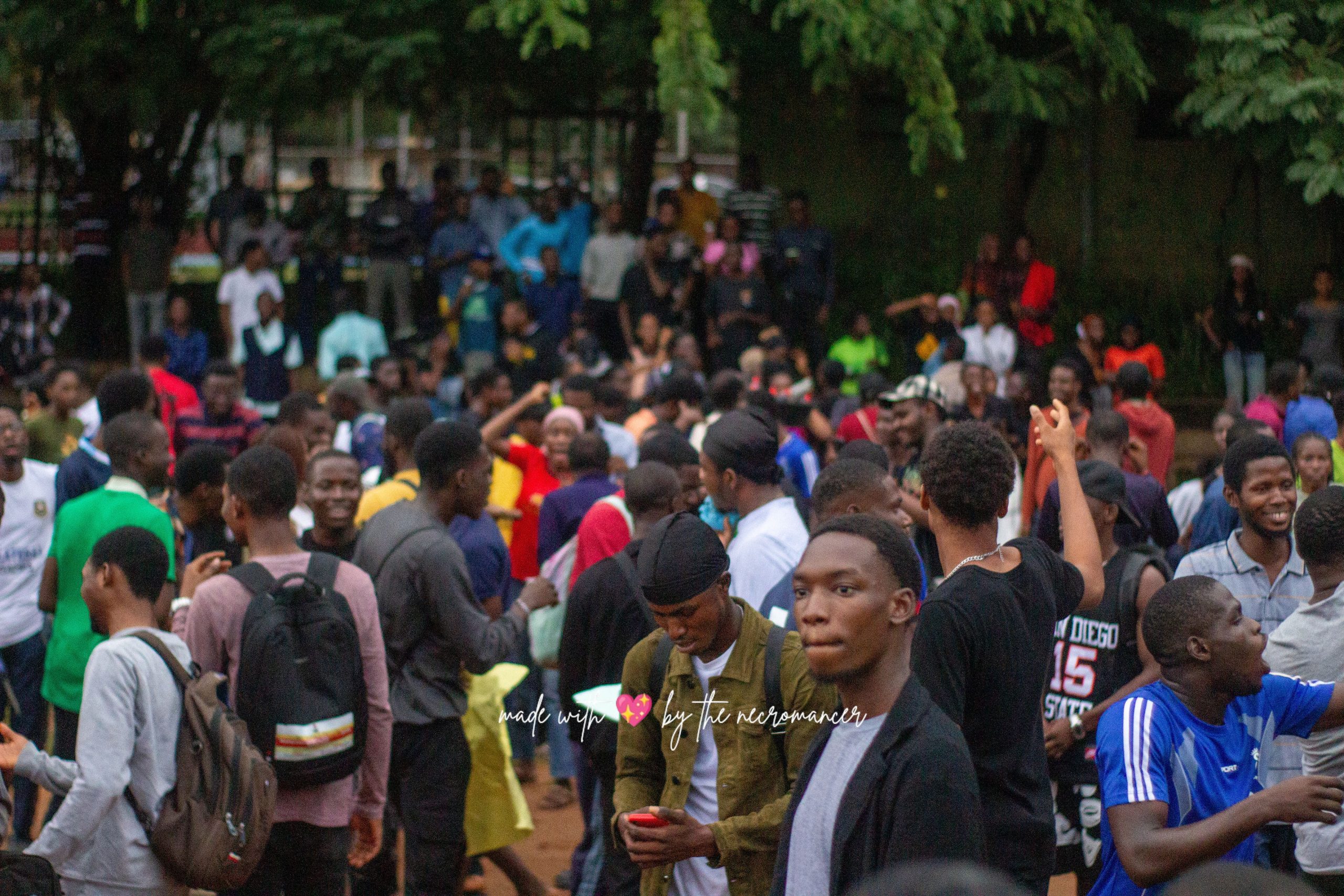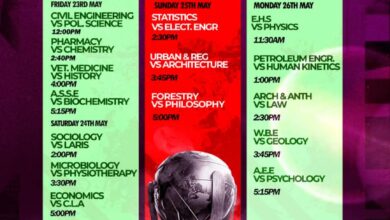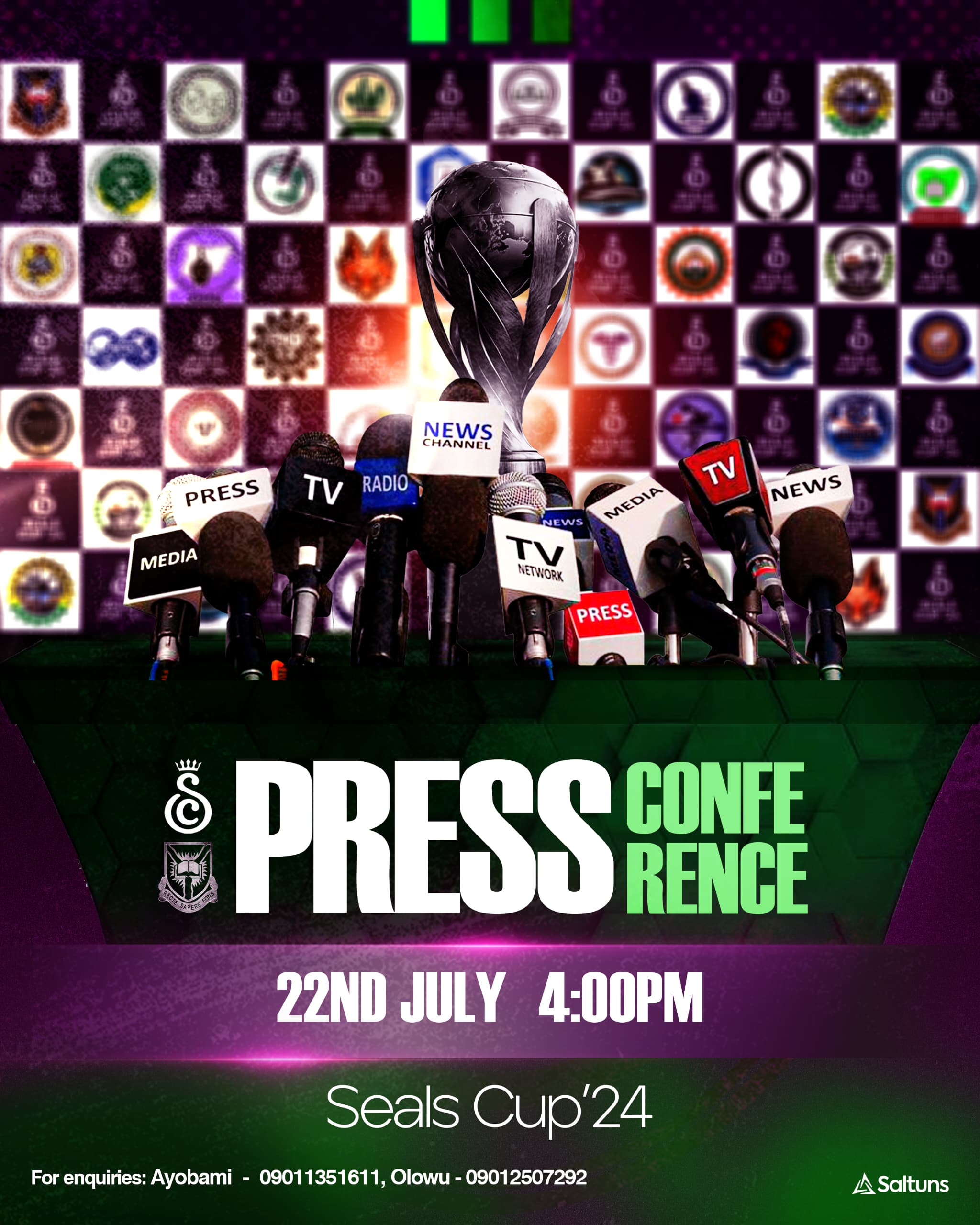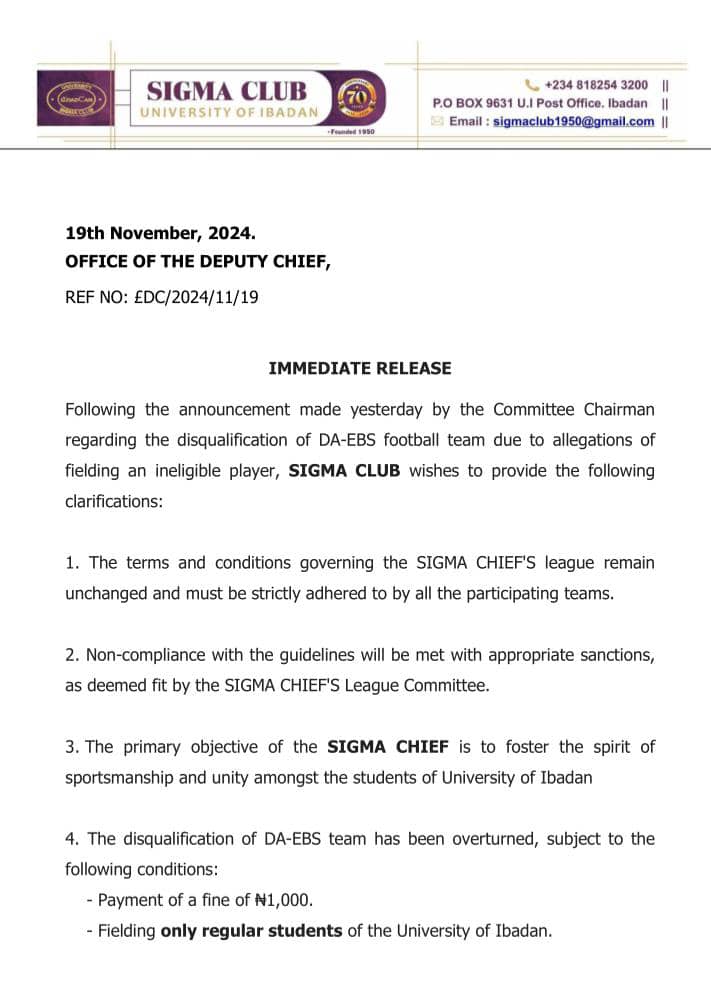Induction: The Storybook Ending That Takes Away Gems

The year is 2023. It is the second edition of the SEALS Interdepartmental Cup, and Ibadan Medicine has just lost its semifinal tie to Political Science. Obeya Mark, the coach, looks stupefied. The players cannot believe it; it is heartbreak in SUB for the onlooking supporters. We went on to finish third in the competition. Fast forward to this year, Ibadan Medicine competed again in the Seals Cup, and we managed to go all the way, lifting the trophy on the 24th of August, 2024. That made it the second podium finish for the student doctors in as many outings.
One peculiar feature of the student doctors’ participation in competitions is numbers, courtesy of the number of classes (6) in the department at every point in time. Despite these numbers, fellow students from neighbouring departments still believe we have no business being that competitive at every level, at least not in sports. It’s a common rhetoric that our schedules alone are demanding enough for us to have some time committed to these extracurriculars. As much as we can boast of numbers and, by extension, higher chances of having decent players at the amateur level, we also face a dilemma of team dynamics when certain players get inducted into the profession and bid the department a hard but necessary goodbye. The induction ceremony of the final year classes each year chips away at the team’s strength as a whole in terms of the loss of certain players and even coaches, how the team tries to cover these weaknesses, and what the future holds for the team in subsequent competitions as more of these gems graduate.
More recently, our story began at the university’s Inter-Faculty football competition in September 2021. The Clinical Sciences team, coached by Oluwasegun Adebayo (Stifler), heavily comprised the then 2k17 and 2k18 Ibadan Medicine players: Segun Black, Gbolly, Sylvester, Rado, Okoro, and Rockson. The outing was one to be quickly forgotten as the team didn’t progress past the group stages.
After the 2k17 class exited, Adejumo Sheriff assumed the responsibility of managing the team. Under his managerial time, and with 2k18 being the most senior class, the team managed to finish in second place in the Chief Medical Director’s Cup. At the time of the induction of 2k18, things looked uncertain and dire for the team as it had been stripped of defensive stalwart Rockson, captain Sylvester, goalkeeper Charles, and frontman Okoro.
Both Stifler and Sheriff preferred to play with a 4-2-3-1 setup. Perhaps this was best suited to the profile of players in their squads because all they needed to do was to pair another defender (usually Jenyo) with Rockson, find a player to pair with Rado in the middle of the park, allow Gbolly roam freely on the wings and Okoro do his job in the opponent’s box. While this worked, it was evident by the team’s performance in competitions that something still wasn’t clicking. There was also the issue of the disconnect between the players in the preclinical arm and those in the clinical arm. Although a few players like David Akinnusoye, Alabi Qouyyum (Istanbul) and Habeeb Akinlabi made the team right from when they were in the preclinical arm, the general feeling from the players in UI was that they weren’t even given the chance to prove that they were good enough to be in the team.
Next in line to be at the helm of affairs was Obeya Mark. He took Ibadan Medicine to new levels; he implemented his philosophy of football, a fine blend of mass attack and mass defence more popularly known as hypertension football. This style changed the formation of the team from a 4-man defence to predominantly 3 at-the-back. He also made an effort to include players from the preclinical arm; this proved to be a sound decision as he found a goldmine, especially in the 2k24 class. In addition to Dave, he recruited Gerald Olokungbemi, a versatile midfielder; Adeoluwa Ariyo, a goalkeeper; Babajide Badmus, a phenomenal goal machine; Saint-Elijah Olapoju, a tireless midfielder; and Oluseyi Qazeem, a cool-as-you-like defender. The last preclinical player who made the team was Emmanuel Abang from the 2k25 class. Mark finished third at the first SEALS Cup competition that UIMSA participated in, and the CMD Cup, coming second in the Provost Cup and claiming first place in the USA Cup. His success stemmed from his ability to identify ideal replacements for the inducted players. In Basit Saliyu, he found a like-for-like — if not better — substitute for Rockson; Adeolu from the 2k24 class stood between the sticks, and Lukman solved the Sylvester problem.
After such a successful campaign, the role of the coach of the Ibadan Medicine football team seemed impossible to fill, and some players (Basit), impossible to replace. Enter Omotunde Olamide (Liam), Mark’s successor; he managed to raise the standards even higher. He continued with his predecessor’s philosophy of football, broke the near success jinx and made Ibadan Medicine champions of the university by winning the prestigious SEALS Cup 2024; he followed this by finishing second in the NIMSA Games held in Lagos, with the Provost Cup still in view. The reason for his success is not far-fetched; the integration of Segun Adegoke and Behemoth in the midfield worked wonders and filled the void that Basit left.
With the induction of the 2k21 class just months away, Ibadan Medicine once again faces uncertain times ahead. Long-time regulars in the squad, like current captain Ramoni Ayodeji, Benjamin Adekunle (Karbon), Teslim Adepoju, Ayotunde Oni, and gaffer Liam, are bound to leave. Also, for the first time in a while, the squad’s attack will feel a huge blow with the exit of two key players. Fortunately — or unfortunately — if the Provost Cup doesn’t hold before their induction, the last time we, as an association, will watch these gems play together will be at this year’s Ulympics, where the 2k21 class faces off against 2K24 and 2K26 in a bid to qualify from their group.
Whoever picks up the mantle as the next coach will have a lot of work to do in finding and then integrating suitable replacements for the lost gems as we enter other competitions and defend the SEALS Cup next session.
Gerald Olokungbemi.



